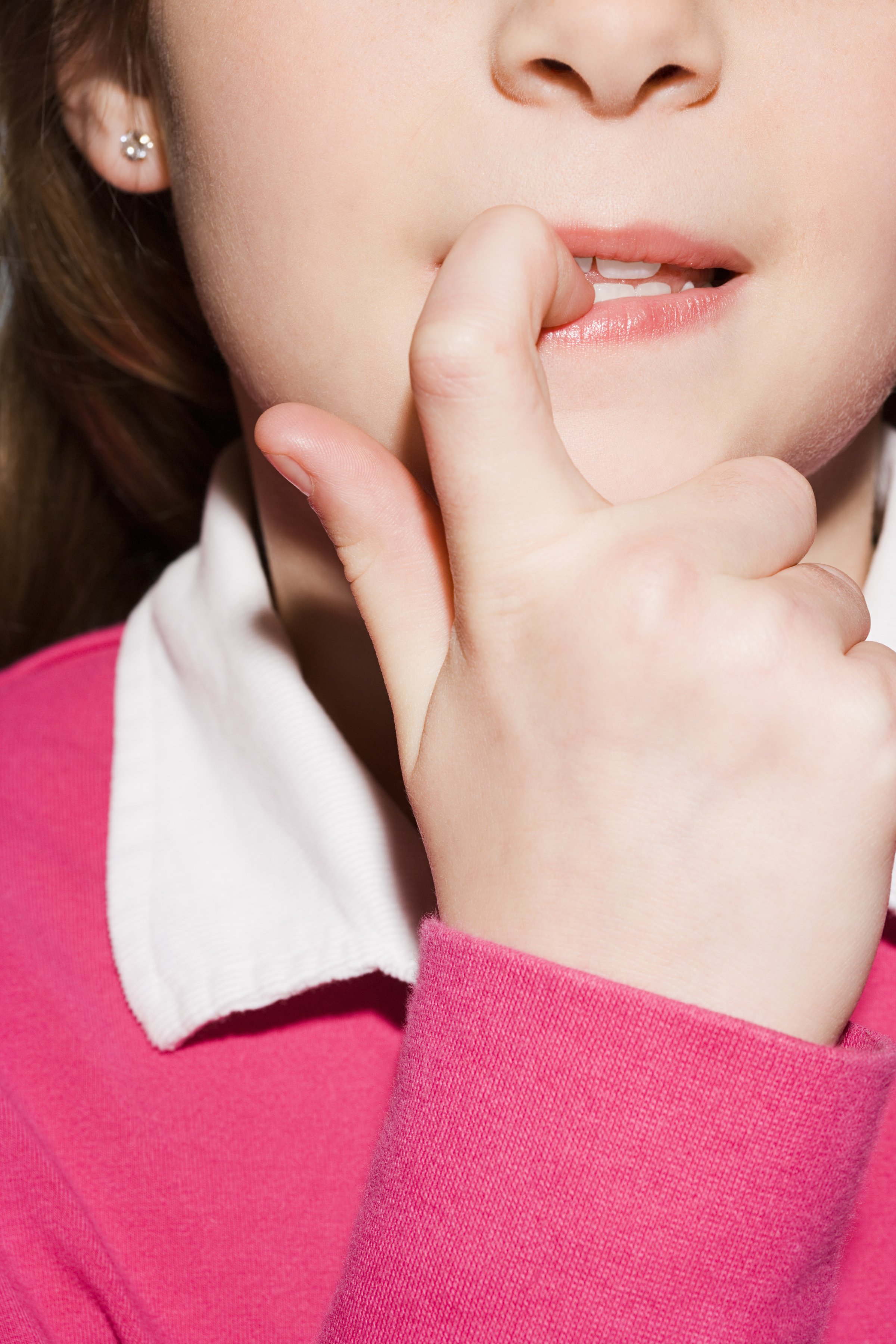
Kids love to put their hands in their mouths. Up to 25% of children suck their thumb or bite their nails, despite warnings not to; dentists and dermatologists caution that thumb sucking can adversely affect gum and mouth health and even lead to skin conditions that increase the risk of infections. And nail biting—not the most hygienic habit, as our hands are teeming with bacteria—often continues into adulthood.
But in a study published in the journal Pediatrics, researchers from New Zealand and Canada found that children who suck their thumbs or bite their nails are less likely to have allergic-type reactions to a variety of things, including pets and mites, than children who don’t. In fact, kids who engage in both habits have the lowest positive tests on skin-prick tests for allergies.
Researchers followed a group of about 1,000 people from birth until age 32 and tested them periodically for allergies using a skin-prick test. While testing positive did indicate they were allergic, it didn’t necessarily mean that the person would have severe reactions to the allergens, like rashes, inflammation, sneezing or wheezing.
About half of the people who didn’t suck their thumb or bite their nails as children tested positive for allergies at age 32. Children who had at least one of the two habits were 40% less likely to test positive as adults, and children who did both showed the lowest rates of reactions to the allergens—31%—as adults.
The findings support the hygiene hypothesis, which says that early exposure to things like bacteria, viruses and allergens can prime the immune system to be stronger and better able to respond to any microbial attacks. It’s possible that the germs that children ingest from sucking their thumbs or biting their nails sets up certain populations of microbes in the gut that can educate the immune system and get it ready to mount attacks against other, more unfriendly and disease-causing germs.
The study did not find, however, that the kids with these habits had lower rates of things like asthma or hay fever. That’s a little surprising, but because the study relied on people to self-report their asthma diagnoses and symptoms, the data may not have been entirely accurate as objective skin-prick results. Asthma also works in a different way than immune sensitization, so whatever effect germ exposure had may have been obscured by those other pathways.
Still, the data does not suggest that thumb sucking or nail biting are a good way to prevent allergies. “What we are saying is don’t be quite so afraid of a little bit of dirt,” says Dr. Malcolm Sears, a respirologist at McMaster University and one of the co-authors of the study. “We’re not sure what it is in dirt, whether it’s microbes or some other substance, that actually protects us. We’re not quite there yet.” In the meantime, being a little less clean might not be such a bad thing for our health.
More Must-Reads from TIME
- Why Trump’s Message Worked on Latino Men
- What Trump’s Win Could Mean for Housing
- The 100 Must-Read Books of 2024
- Sleep Doctors Share the 1 Tip That’s Changed Their Lives
- Column: Let’s Bring Back Romance
- What It’s Like to Have Long COVID As a Kid
- FX’s Say Nothing Is the Must-Watch Political Thriller of 2024
- Merle Bombardieri Is Helping People Make the Baby Decision
Contact us at letters@time.com